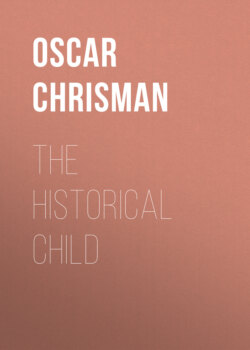Читать книгу The Historical Child - Oscar Chrisman - Страница 6
На сайте Литреса книга снята с продажи.
Birth.
ОглавлениеTable of Contents
As soon as a woman was found to be pregnant the relatives and friends were informed of it and a feast was prepared, to which all were invited who had been present at the wedding. Speeches of congratulations and of admonition were made to the future parents. During the period before the birth of the child, the mother was careful and she observed many rules. "Thus, sleeping in the daytime would contort the child's face; approaching too near the fire or standing in the hot sun would parch the fœtus; hard and continued work, lifting weights, running, mental excitement, such as grief, anger, or alarm, were particularly avoided; in case of an earthquake all the pots in the house were covered up or broken to stop the shaking; eating tzictli, or chicle, was thought to harden the palate of the unborn child, and to make its gums thick so that it would be unable to suck, and also to communicate to it a disease called netentzzoponiztli; neither must the edible earth, of which, as we shall see in a future chapter, the Mexicans were very fond, be eaten by the mother, lest the child should prove weak and sickly; but everything else the woman fancied was to be given her, because any interference with her caprices might be hurtful to her offspring."2 When the time of confinement drew near another feast was given and speeches and suggestions were made. Among the higher classes a midwife was procured and careful preparation was made for the confinement. A woman dying in childbirth was honored by a burial with great ceremony. When the child was born, there was rejoicing with praises to the mother and congratulations to parents and grandparents, and even the child itself was spoken to in welcoming words by the midwife as it was being dressed.
